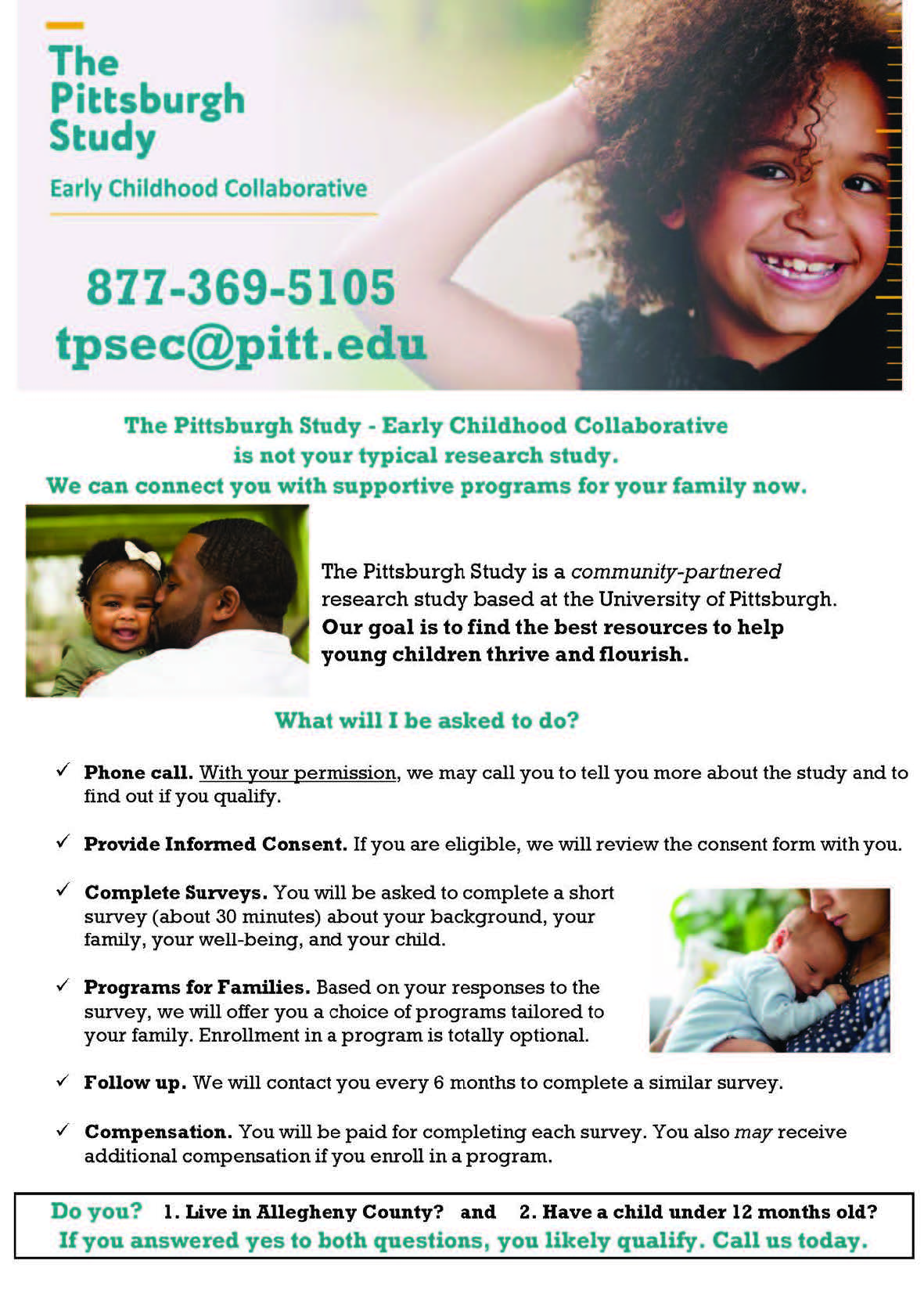As 2020 closes, and we are still mired down by the COVID-19 pandemic, it is time to reflect. It has been a difficult year for most of us and our families. People have been forced to find ways to bounce back from hardship, to be resilient. We have given support and asked for support from each other in order to protect ourselves and our families. Some people’s difficulties have been made worse by the pandemic. Fortunately, Allegheny County is an area with many resources that can help people and families to be resilient in these times.
 “We’re very lucky in Allegheny County to have a lot of prevention, family-strengthening and community support services,” says Amy Malen, assistant deputy director of the Office of Community Services in Allegheny County’s Department of Human Services (DHS). “But when we look at who’s participating in services, we’re not reaching everyone. People aren’t always aware of what services are available to them, and it can be overwhelming to navigate services.”
“We’re very lucky in Allegheny County to have a lot of prevention, family-strengthening and community support services,” says Amy Malen, assistant deputy director of the Office of Community Services in Allegheny County’s Department of Human Services (DHS). “But when we look at who’s participating in services, we’re not reaching everyone. People aren’t always aware of what services are available to them, and it can be overwhelming to navigate services.”
The Pittsburgh Study is a resource for families and a community-partnered study to find out what works to help children thrive. The study follows children in Allegheny County from birth through high school in order to find out the best ways to give children the support they need to graduate from high school on time, be healthy, and thrive. This is the largest community-partnered, intervention study to follow children over time. People who are pregnant, parents, babies, toddlers, preschoolers and children in elementary, middle and high school can participate in the study. Children can enroll at different ages.
So, how is the Pittsburgh Study a community resource? It not only informs researchers on how best to help children thrive, the study itself provides families with access to resources.
The study comprises different groups based on age—from pregnancy to adolescence. With the Early Childhood Collaborative group, families can access the Pittsburgh Study at various places that are familiar to them—birthing hospitals, WIC, family support centers and other health care providers’ offices. Families consent to be a part of a research study, and they take a screening survey. That screening is evaluated immediately, and, based on their responses, families are offered programs that fit their strengths and challenges. The programs range from establishing an online relationship with someone who can help answer questions during an infant’s first year of life to in-person programs that encourage cognitive stimulation and/or other parenting skills (promoting positive child behavior).
 “The Pittsburgh Study is a formal research project, but it’s a bit unusual,” says Daniel S. Shaw, PhD, Distinguished Professor of Psychology at the University of Pittsburgh Dietrich School of Arts and Sciences and lead of the Early Childhood Collaborative. “We’re not trying to find out whether one intervention works better than another intervention. It’s about whether offering these evidence-based programs in nontraditional systems will help us reach more people. If we make it easy for families, will they be more likely to use these programs?”
“The Pittsburgh Study is a formal research project, but it’s a bit unusual,” says Daniel S. Shaw, PhD, Distinguished Professor of Psychology at the University of Pittsburgh Dietrich School of Arts and Sciences and lead of the Early Childhood Collaborative. “We’re not trying to find out whether one intervention works better than another intervention. It’s about whether offering these evidence-based programs in nontraditional systems will help us reach more people. If we make it easy for families, will they be more likely to use these programs?”
One of the Early Childhood Collaborative’s partners is Hello Baby, a voluntary family-assistance program from Allegheny County’s DHS. Developed because people are not aware of or using all of the county’s services, Hello Baby is a way to help families find the support they need. It also helps DHS reach more families who can benefit from support, better match families and babies to the right services and ensure that the most vulnerable families and babies have access to the best services to fit their needs.
Parents of every newborn receive information about Hello Baby in the hospital and are then offered services based on their level of need. Outside of the hospital, families can visit hellobabypgh.org, a comprehensive website with wide-ranging resources.
“These supports run the whole gamut—health of the child and parent, child care, basic needs, family support, child development, housing, drug and alcohol counseling, mental health services, etc.,” says Ms. Malen. “The program is designed to build meaningful relationships and meant to connect you to whatever your needs are as a parent.”
The Pittsburgh Study and Hello Baby are similar in that each is an entry point for increasing parents’ accessibility to the wealth of services available in Allegheny County. The Pittsburgh Study also involves taking a 30-minute survey, for which families are paid, every six months through their children’s first 36 months of life, then annually thereafter. At each point of contact, families can opt in to offered services—or they can choose not to participate in any programs and just be a part of the study. The overall goal is the same.
“We have evidence-based programs that we know can support families and make their lives better,” says Dr. Shaw. “Both Hello Baby and the Pittsburgh Study want to connect families to them. Our end goal isn’t to publish research; it’s to help children thrive.”
